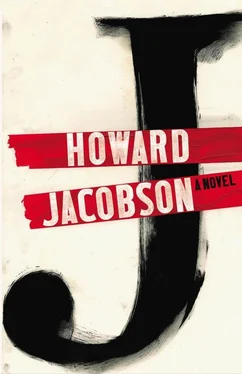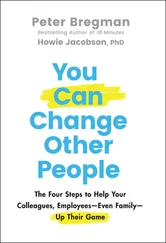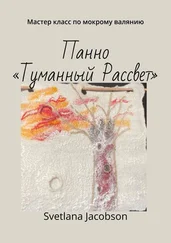FOUR. R.I.P. Lowenna Morgenstern
i
AILINN KNEW EVEN less about her family.
Kevern thought that Ez, the fraught, angular woman with the tight frizzy hair who had brought her down to share the cottage in Paradise Valley, was her aunt, but she wasn’t.
‘No relative,’ Ailinn explained. ‘Not even a friend really. No, that’s unfair. She is a friend. But a very recent one. I only met her a few months before I came away, in a reading group.’
Reading groups were licensed. Because they were allowed access to books not otherwise available (not banned, just not available), readers had to demonstrate exceptionality of need — either specific scholastic need or, if it could be well argued for (and mere curiosity wasn’t an argument), general educational need. Kevern was impressed that Ailinn had been able to demonstrate one or the other. But she told him she had simply been able to pull a few strings, her adoptive mother being a teacher.
Books apart, this account of her relations with Ez explained to Kevern why she had made so little ceremony of introducing them. It was as though she had never been introduced to her herself. He was amazed by how anxious she could be one minute, and how devil-may-care the next. ‘And you threw in your lot with a woman you’d met in a reading group, just like that?’
‘Well, I’d hardly call it throwing in my lot. She offered me a room in a cottage she hadn’t ever seen herself, for as long or as short a time as I wanted it, in return for my company, and some help painting and gardening, and I could find no reason to say no. Why not? I liked her. We had a shared interest in reading. And there was nothing up there to keep me. And I reckoned I could sell my flowers just as well down here. . probably better, as you get more tourists than we do, and. . and of course there was you. .’
‘You knew about me?’
‘My heart knew about you.’
Her arrhythmic heart.
He couldn’t tell how deep her teasing went. Did she truly think they were destined for each other? He would once have laughed at such an idea, but not now. Now, he too (so he hoped to God she wasn’t playing with his feelings) wanted to think they had all along been on converging trajectories. But no doubt, and with more reason, his parents had thought the same.
She had no memory of her parents — her actual parents — which made Kevern feel more protective of her still.
‘No letters? No photographs?’
She shook her head.
‘And you didn’t ask?’
‘Who would I have asked?’
‘Whoever was caring for you.’
She looked surprised by the idea that anyone had cared for her. He picked that up — perhaps because he wanted to think that no one had cared for her until he came along. ‘Someone must have been looking after you,’ he said.
‘Well I suppose the staff at the orphanage to begin with, though I have no memory of them either. Just a smell, like a hospital, of disinfectant. I was brought up by a smell. And after that Mairead, the local schoolteacher, and her husband Hendrie.’
‘And what did they smell of?’
She thought about it. ‘Stale Sunday afternoons.’
‘They’d been friends of your parents?’
She shook her head. ‘Didn’t know my parents. No one seems to have known them. Mairead told me when I was old enough to understand that she and Hendrie were unable to have children of their own and had been in touch with an orphanage outside Mernoc — a small town miles from anywhere except a prison and a convent — about adoption. When they were invited to visit, they saw me. They chose me like a stray puppy.’
She normally liked to say ‘like an orange’, but there was something about Kevern that made her think of strays.
‘I can understand why,’ he said, losing his fingers in the tangle of her hair.
She raised her face to him, like one of her own flowers. ‘Why?’
‘You know why.’
‘Tell me.’
‘Because to see you is to see no one else.’ He meant it.
‘Then it’s a pity you didn’t choose me first.’
‘Why — were they unkind to you?’
‘No, not at all. Just remote.’
‘Are they still alive?’
‘No. Or at least Mairead isn’t. Hendrie is in a care home. He has no knowledge of the world around him. Not that he ever had a lot.’
‘You didn’t like him?’
‘Not a great deal. He was a largely silent man who fished and played dominoes. I think he hit Mairead.’
‘And you?’
‘Occasionally. It wasn’t personal. Just something men did. Do. Towards the end, before they put him in a home, it got worse. He started to make remarks like “I owe you nothing”, and “You don’t belong here”, and would throw things at me. But his mind was going then.’
‘And you never found out where you did belong?’
‘I belonged in the Mernoc orphanage.’
‘I mean who put you there?’
She shrugged, showing him that his questioning had begun to weary her.
‘I’m sorry,’ he said. Adding, ‘But you belong here now.’
ii
As a matter of course, she woke badly. Her eyes puffed, her hair matted, her skin twice its age. Where had she been?
She wished she knew.
At first Kevern thought it was his fault. He’d been tossing and turning, perhaps, or snoring, or crying out in the night, stopping her sleeping. But she told him she had always been like this — not morning grumpiness but a sort of species desolation, as though opening her eyes on a world in which no one of her sort existed.
He pulled a face. ‘Thank you,’ he said.
‘You’re not yet the world I wake up to,’ she said. ‘It takes me a while to realise you’re there.’
‘So why such desolation?’ he wanted to know. ‘Where do you return from when you wake?’
‘If only I could tell you. If only I knew myself.’
Mernoc, Kevern guessed. He saw an icy orphanage, miles from nowhere. And Ailinn standing at the window, barefooted, staring into nothing, waiting for somebody to find her.
Pure melodrama. But much of life for Kevern was.
And thinking of her waiting to be found, while he was waiting to find, gave a beautiful symmetry to the love he felt for her.
What she’d told him awakened his pity and pity gave him a better reason to be in love than he’d ever had before. There was rapture and then there was responsibility. Each imposed an obligation of seriousness. But together they made the serious sacred.
He couldn’t rescue her from her dreams, but he could make waking better for her. The minute he sensed her stir he would get out of bed and open the windows, so that she would wake to light, the smell of the sea, and the cries of the gulls. But sometimes the light was too harsh and the smell of the sea too pungent and the cries of the gulls a mockery. ‘They sound the way I feel,’ she’d say.
Did that mean that gulls, too, suffered species desolation?
So he had to make a quick decision every morning: whether to open the curtains or keep them closed.
But when the sea was rough they could still hear the blowhole like a giant mouth sucking in and then expelling water. On wild days they would even see the spittle.
‘Reminds me of a whale exhaling air,’ she said once. ‘Do you remember that passage in Moby-Dick describing whale-jets “up-playing and sparkling in the noonday air”?’
He didn’t.
‘But you’ve read the book?’
He had. Years ago. Moby-Dick was one of the classic novels that had not been encouraged to drift out of print — though most editions were in graphic form — the grounds for its remaining available being the interest felt in it by fishing communities, its remoteness otherwise from the nation’s calamitous recent history, and the fact that it was from its opening sentence — ‘Call me Ishmael’ — that the colossal social experiment undertaken to restore stability borrowed its name.
Читать дальше












